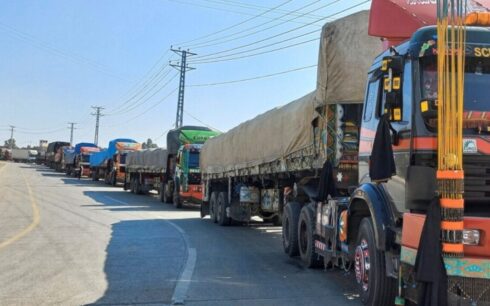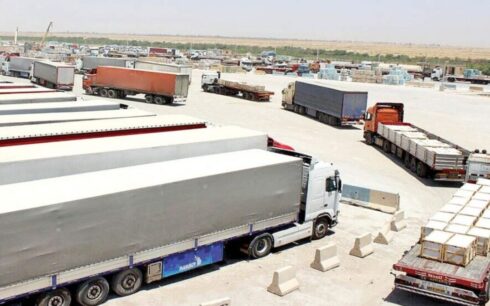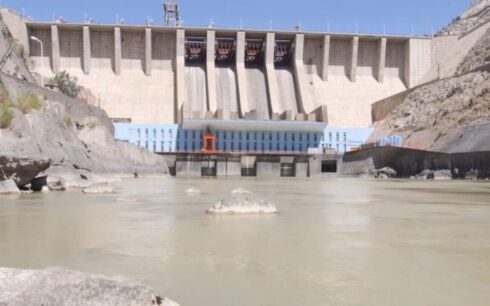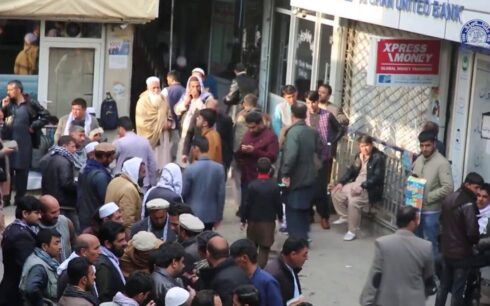A number of traders raised concerns over strict laws imposed on businessmen and challenges they face at the Abreshum border with Iran which has caused “unprecedented” stagnation in cross-border trade.
According to them, both the Taliban and Iranian governments create obstacles around trade on both sides of the border. They say trade volume through the Abreshum crossing has dropped by 70 percent compared to last year.
Mohammad Sediq Noorzahi, a trader in Nimroz, told Amu that traders in the province face many problems from both sides of the border and the two sides do not pay attention to resolving the problems.
Among their problems are the “rise in the price of goods in Iran, the inspection of shipments and the excessive strictness at Abreshum bridge by the Iranian government.
“They keep the cargo across the border and in some cases goods are being damaged which causes losses to the traders,” Noorzahi said.
He also said that the rent of trucks at the Abreshum border is much higher compared to Farah and Herat borders, “because at the borders of other provinces, they charge lower tariffs, but at the Abreshum border they (customs officers) charge a huge amount in tariffs. The Iranian side charges Afghan traders for land use, and insurance, that’s why the rent of vehicles is high.”
He added that to rent a truck costs between 100,000 afghanis ($1111) and 120,000 afghanis ($1334) from the Iranian side to the Afghanistan side – the distance is one kilometer – at the border.
“During the republic government, customs tariffs were 70 percent, and traders used to import more goods into the country, but after the Taliban took over, the tariffs mounted to 100 percent; therefore, traders import fewer goods, and for this reason, trade has stagnated,” Noorzahi said.
Amrullah Tajik, another trader who has been importing food items via the Abreshum border for 7 years, told Amu TV that tariffs on commercial goods increased by 100 percent compared to the period under the former government and “the government of Iran also takes a lot of money from Afghan vehicles – for many excuses that put pressure on the Afghan traders. Currently, traders import 30 percent of their shipments via the Abreshum border.”
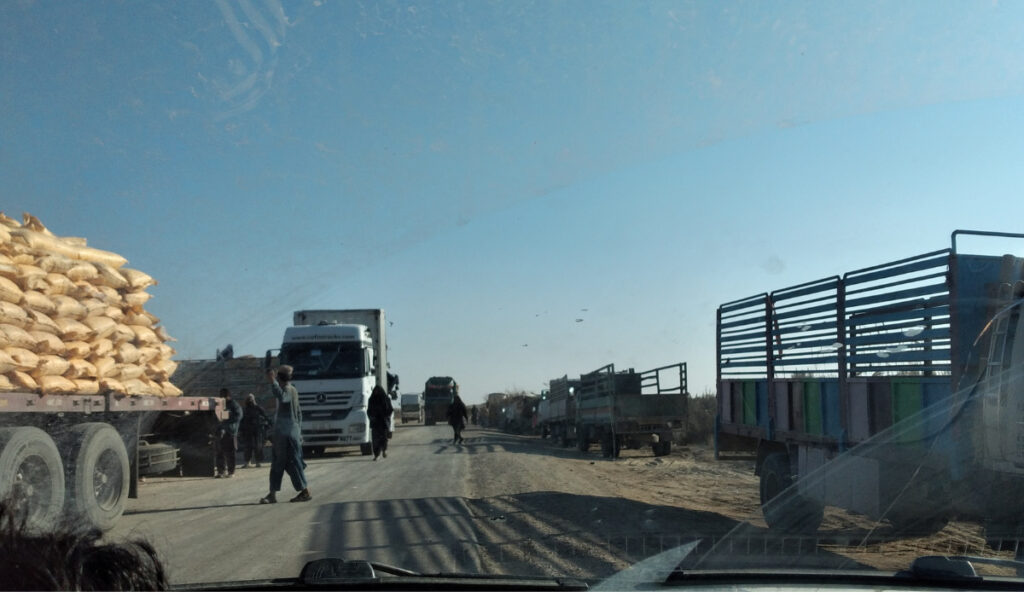
According to him, the Iranian government charges 30,000 afghanis ($334) for the trucks that transit to Iran.
He added that Iranian forces have put strict measures on Afghan shipments following the recent border clashes between the Taliban and Iranian forces.
Regarding high transportation rates, Tajik said that the fees through the Farah border is 60,000 to 70,000 AFN, which is a 120 km stretch but in Nimroz it is up to 120,000 AFN for one to two kilometers through the Abreshum border.
According to Tajik, the Iranian government implements double standards for Nimroz and the other provinces – Farah and Herat – that share borders with Iran.
He added there are a lot of challenges at the Abreshum border; for instance, Afghan drivers are not allowed to fill their vehicles with Iranian fuel at the border while it is free at the two other borders.
Najibullah Khashrudi, the CEO of Nimroz chamber of commerce and investment, said that he shared the problems with the relevant Afghan customs department and Karami, the governor of Iranian Sistan and Balochistan province two weeks ago. According to him, a 26-article memorandum of understanding was signed between the two sides, allowing 600 vehicles to transit through the Abreshum border daily.
Khashrudi stated: “A container is being loaded with 20 types of materials. We need to describe all goods separately in order to put tariffs on them. But the merchant should not suffer a loss, only the label of the cartons should be controlled.”
He stated that the Iranian government has been creating obstacles for Afghan traders; “the transit process is slow on Iran’s side. Moreover, weapons and drugs are being smuggled via the border therefore, Iranian forces have increased checking.”
A source meanwhile said the Iranian government has breached the agreement and reduced the number of vehicles from 600 to 300 through the border crossing a day. The source also said that the Iranians charge $3,500 from Bandar Abbas to Milk land port, while the same cargo to Farah and Herat borders costs only $1,000.
The source added, traders have held many meetings with the Taliban officials to solve their problems and are now hoping to meet with Iranian authorities to resolve issues.


